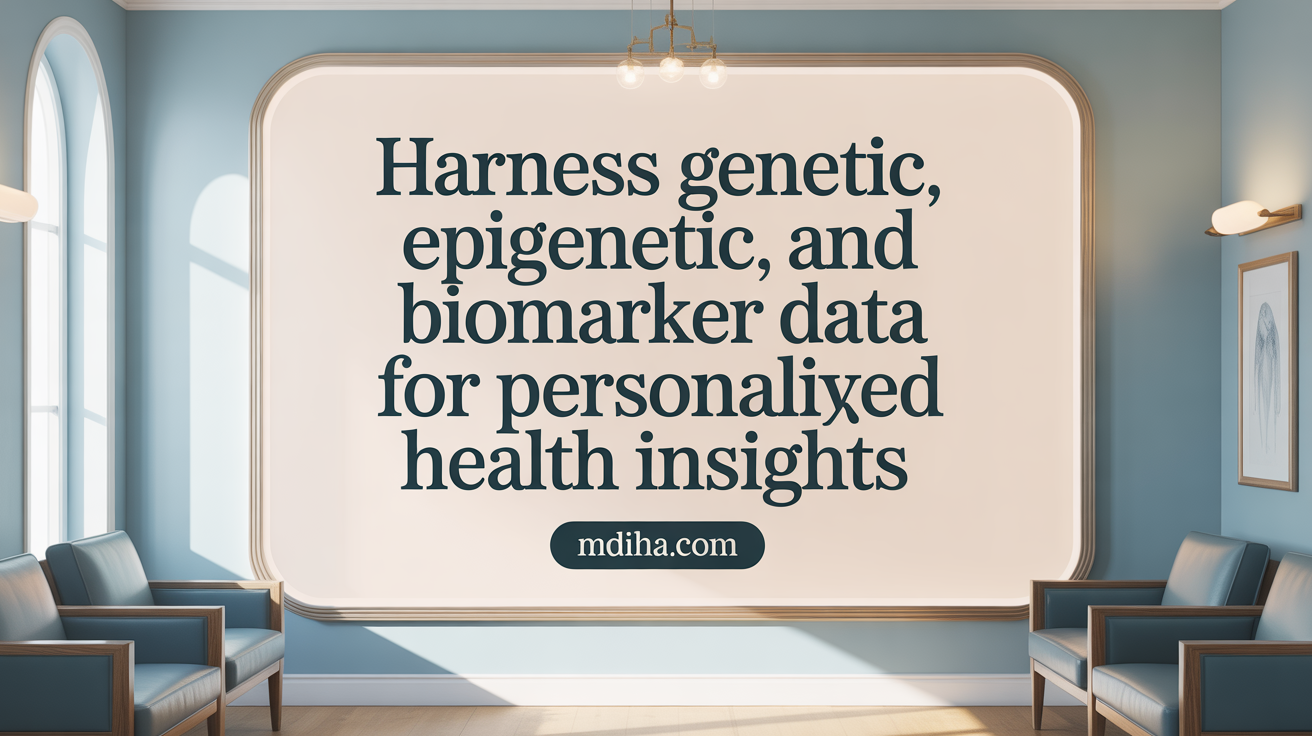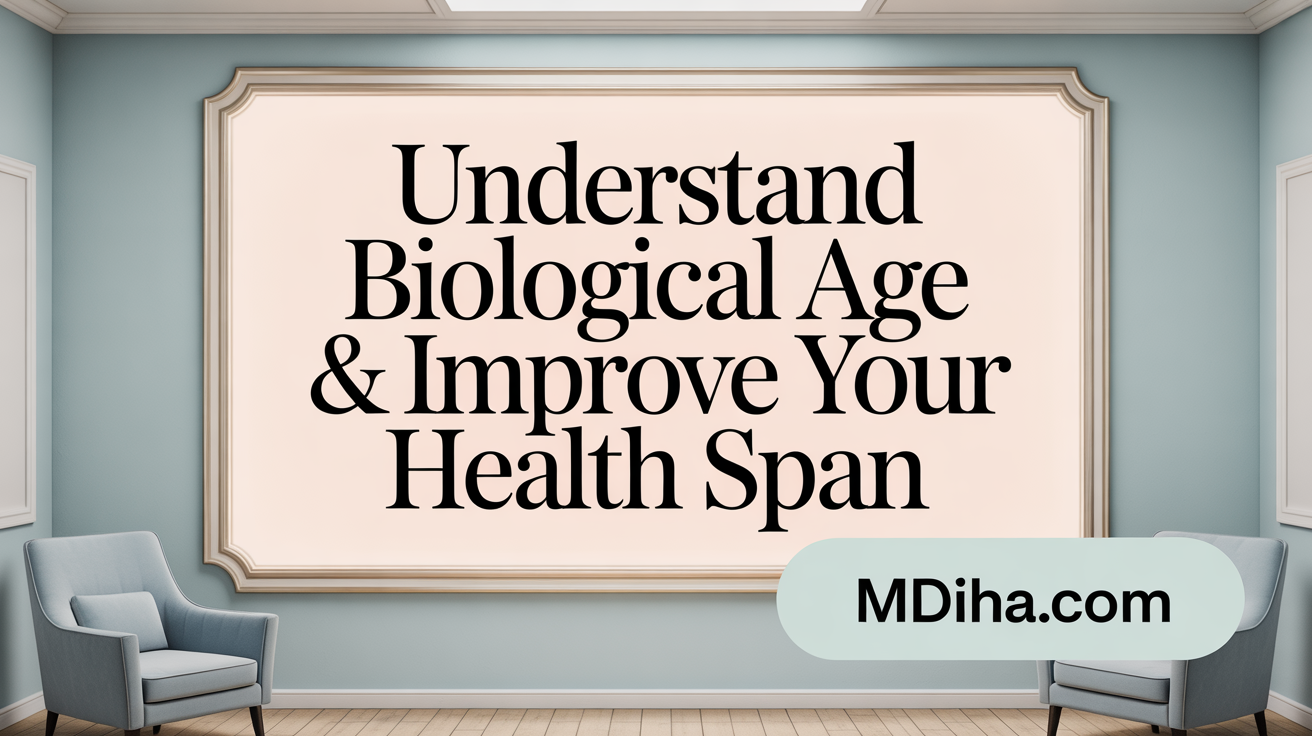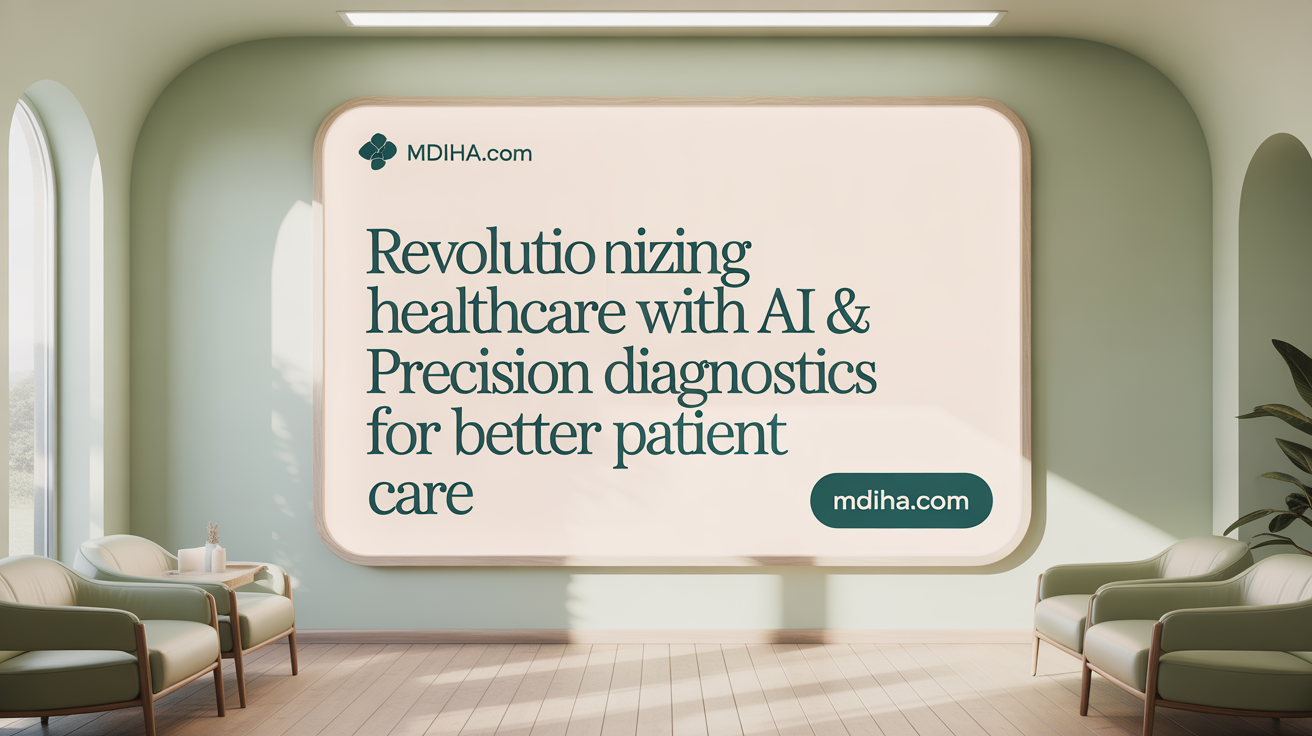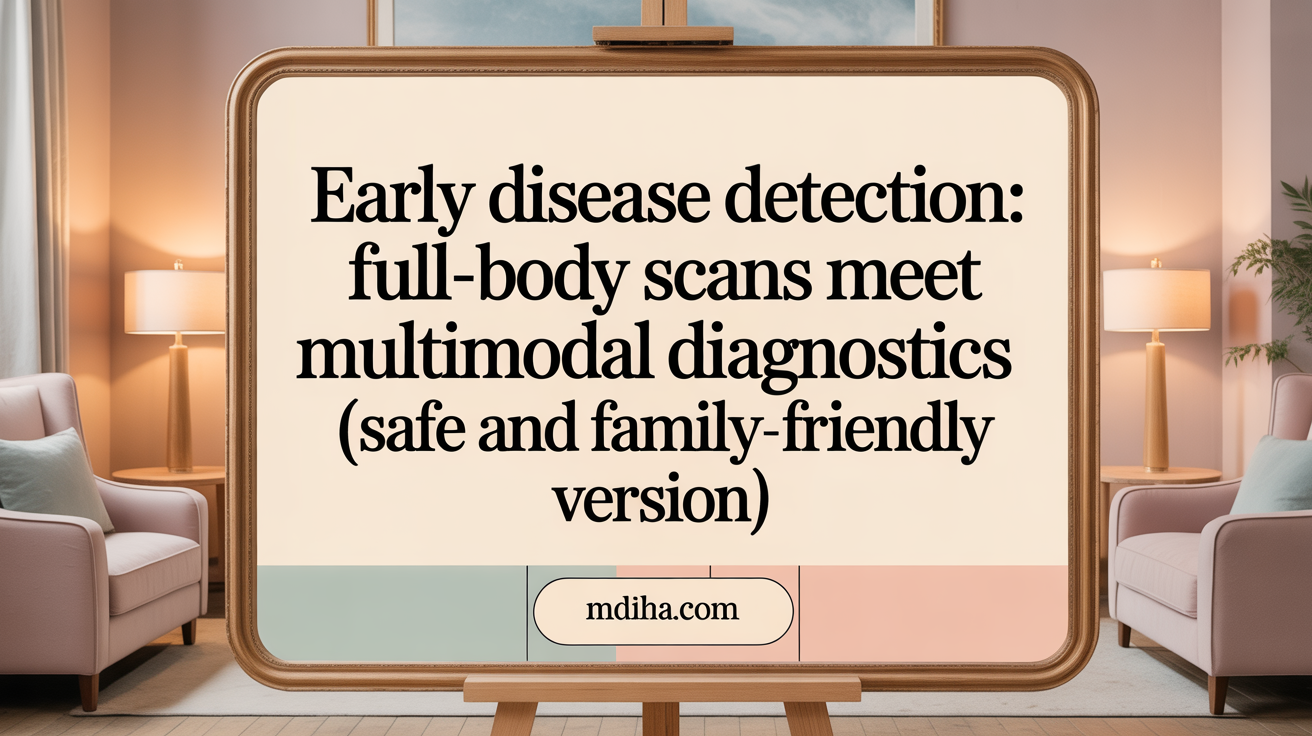The Dawn of Tailored Longevity
As we push the boundaries of human lifespan and healthspan, personalized diagnostics have emerged as a critical tool to tailor health strategies uniquely suited to each individual. Leveraging vast arrays of biological data, genetic insights, and cutting-edge technology, healthcare is transitioning from reactive treatments to proactive, precision-focused longevity optimization. This article explores how diagnostic innovations shape the future of personalized longevity plans, empowering individuals to take control of their aging journey with actionable, data-driven interventions.
Harnessing Diagnostics to Personalize Longevity Strategies

How are diagnostics used to personalize health and longevity strategies?
Diagnostics play a crucial role in tailoring health and longevity plans to an individual’s unique biology. Advanced testing methods, including genetic, epigenetic, and biomarker analyses, provide detailed insights into a person’s biological age, risk for age-related diseases, and their body's current functional state.
For example, genetic testing helps identify predispositions for conditions like cardiovascular disease, neurodegeneration, or cancer. Epigenetic clocks and biological age algorithms estimate how fast someone is aging at the cellular level, guiding targeted interventions.
Wearables and physiological metrics such as VO₂ max, body composition scans, and sleep assessments offer real-time data on an individual’s health status. This continuous stream of information allows healthcare providers to detect early deviations from optimal health and adjust strategies proactively.
Furthermore, comprehensive diagnostics within frameworks like the 'Longevity Pyramid' inform specific lifestyle changes, pharmacological approaches, or emerging therapies like senolytics or NAD+ boosters. This personalized approach moves the focus from reactive disease treatment to prevention and optimization, ultimately aiming to extend health span and improve quality of life.
The Science Behind Biological Age and Health Span Optimization

What is the concept of biological age and health span in personalized longevity planning?
Biological age indicates an individual's physical and molecular condition, offering a more precise measure of aging than chronological age, which simply counts the years lived. It is influenced by an interplay of genetics, lifestyle choices, and environmental exposures.
Biomarkers such as epigenetic clocks, telomere length, and metabolomic profiles are used to assess biological age. These indicators reveal how well the body is aging at a cellular level, enabling more targeted health interventions.
Health span refers to the duration of life spent in good health, free from chronic age-related diseases and functional decline. Extending health span, rather than just lifespan, is a primary goal of personalized longevity strategies.
Geroscience—the study of aging mechanisms—aims to identify and target the biological processes driving aging. Critical pathways include cellular senescence, mitochondrial deterioration, and chronic inflammation. By understanding these mechanisms, interventions can be tailored to slow down or reverse aspects of biological aging.
Integrating these factors, personalized longevity planning leverages biomarker data and molecular insights to craft customized strategies. This approach promotes not only longer lives but healthier ones, emphasizing quality alongside quantity of life.
Advances in Personalized Medicine: AI and Precision Diagnostics
 Recent developments in personalized medicine are revolutionizing how healthcare is delivered, particularly through the integration of artificial intelligence (AI) and precision diagnostics. These technological advances enable practitioners to create highly individualized strategies for disease prevention, diagnosis, and treatment.
Recent developments in personalized medicine are revolutionizing how healthcare is delivered, particularly through the integration of artificial intelligence (AI) and precision diagnostics. These technological advances enable practitioners to create highly individualized strategies for disease prevention, diagnosis, and treatment.
AI-driven diagnostics harness machine learning algorithms to analyze vast and complex datasets, including genomic information, blood biomarkers, imaging results, and real-time wearable sensor data. This capability allows healthcare providers to identify subtle patterns and risk markers that might go unnoticed with traditional methods.
Precision medicine benefits from genomic insights that reveal individual genetic predispositions to conditions such as cardiovascular disease, neurodegenerative disorders, and cancer. This genetic information guides tailored interventions, ensuring more effective and targeted therapies. AI enhances this process by interpreting genetic variants and predicting responses to specific medications, reducing adverse reactions and improving treatment efficacy.
Machine learning models are instrumental in analyzing biomarkers, assisting in early detection and continuous monitoring of health status. For example, AI can interpret epigenetic modifications, biological age markers, and inflammatory indicators to guide interventions aimed at slowing aging and extending healthspan.
Digital health tools, such as wearable sensors and mobile apps, enable real-time health tracking. AI algorithms synthesize this continuous stream of data, providing dynamic health assessments and early warnings for potential issues before symptoms manifest. This proactive approach supports ongoing health management and lifestyle optimization.
Overall, these technologies lead to a healthcare paradigm shift from reactive treatments to predictive, personalized, and preventive care. They empower patients with precise insights and enable clinicians to develop and adapt strategies swiftly and accurately, ultimately fostering better health outcomes and longevity.
Integrating Full-Body Scans and Multimodal Diagnostics in Proactive Health Management
 Full-body imaging technologies, such as MRI, CT, and specialized ultrasounds, are central to proactive health management by enabling comprehensive visualization of the body's internal structures. These diagnostic tools can detect early signs of disease, such as tumors, arterial plaque, cysts, or organ irregularities that often remain asymptomatic in initial stages. Regular scanning allows for continuous health monitoring, helping individuals and healthcare providers identify changes over time.
Full-body imaging technologies, such as MRI, CT, and specialized ultrasounds, are central to proactive health management by enabling comprehensive visualization of the body's internal structures. These diagnostic tools can detect early signs of disease, such as tumors, arterial plaque, cysts, or organ irregularities that often remain asymptomatic in initial stages. Regular scanning allows for continuous health monitoring, helping individuals and healthcare providers identify changes over time.
Proactive disease detection involves integrating these detailed imaging results with other health data, including blood biomarkers, genetic profiles, and wearable sensor outputs. This multimodal approach enhances the understanding of an individual’s health status and uncovers hidden risks before symptoms appear. For example, combining full-body scans with blood tests for inflammation or lipid levels can improve early diagnosis of cardiovascular problems or cancers.
The integration of diagnostic tools with health information technology (IT) platforms and artificial intelligence (AI) systems is transforming preventive medicine. Electronic health records (EHRs) serve as repositories for imaging results, allowing seamless sharing across medical teams. AI algorithms analyze large volumes of imaging data rapidly, identifying subtle disease patterns that may be overlooked by human observers. These insights support personalized and targeted interventions, reducing the chances of late-stage disease progression.
Advanced AI-driven analytics can predict disease risks based on combined imaging, genetic, and behavioral data, enabling preemptive treatment plans. Interoperability among health IT systems ensures that data from full-body scans are accessible in real-time and integrated with other health metrics. Emerging technologies like blockchain secure this sensitive data, ensuring privacy and integrity.
Benefits of this integrated approach are significant. Early detection facilitates timely treatment, which can prevent disease escalation and reduce healthcare costs. Continuous monitoring allows for dynamic adjustments to health strategies, enhancing overall healthspan. In essence, combining full-body imaging with cutting-edge digital health tools supports a forward-looking healthcare model—one that emphasizes prevention, early diagnosis, and personalized care, ultimately improving quality of life for individuals.
Data-Driven and Bioinformatics Tools Fueling Longevity Optimization
The role of bioinformatics in aging research has become increasingly vital as scientists strive to unravel the complexities of aging at a molecular level. Utilizing vast datasets from genomics, transcriptomics, proteomics, and epigenetics, researchers can identify patterns and biomarkers that signal biological aging processes.
Genomic databases such as GenAge, LongevityMap, and the Human Aging Genomic Resources compile detailed information on genes, genetic variants, and interventions associated with aging. These repositories enable targeted research and help pinpoint genetic predispositions and potential targets for anti-aging therapies.
Machine learning applications further advance this field by analyzing multidimensional data to predict biological age, assess health risks, and personalize longevity strategies. Tools like deep neural networks can evaluate epigenetic clocks, such as GrimAge, to assess an individual’s aging trajectory and monitor the effectiveness of interventions.
Furthermore, the integration of multi-omics data—combining genetic, epigenetic, metabolic, and microbiome information—provides a comprehensive view of an individual’s health status. Platforms that synthesize this information facilitate personalized strategies aimed at delaying aging and preventing age-related diseases.
Overall, these computational tools extend our ability to analyze complex biological data, discover conserved aging mechanisms across species, and develop targeted interventions that promote healthier, longer lives.
Customized Interventions Through Diagnostic Testing and Assessments
What is the role of diagnostic testing and assessments in tailoring personalized health plans?
Diagnostic testing and assessments are foundational in creating personalized health strategies. They offer detailed insights into an individual’s current health status, genetics, and risk factors. Advanced tests such as blood panels, genetic sequencing, full-body MRI, VO₂ max evaluation, and DEXA scans reveal crucial data on body composition, metabolic function, cardiovascular health, and biological aging.
This comprehensive data allows clinicians to identify specific health issues early, such as inflammation, genetic predispositions, or organ irregularities. For example, genomics and biomarker analysis can uncover genetic mutations linked to disease risks like Alzheimer’s or cancer, guiding preventive measures.
AI-driven analysis further enhances interpretation, predicting disease progression and personalizing treatment plans. Pharmacogenomics—which examines how genes influence drug responses—helps in selecting the most effective medications with minimal side effects.
Regular point-of-care diagnostics like blood tests monitor ongoing health changes and assess the effectiveness of interventions. This continuous flow of information enables a proactive approach to health management, shifting from reactive treatments to preventive, personalized care.
In essence, diagnostic assessments serve as the backbone of tailored health plans, informing targeted interventions in exercise, nutrition, sleep, mental health, and medication use. They ensure strategies are customized to each person’s unique biological profile, leading to better health outcomes and healthier aging.
The Benefits and Future of Personalized Health Assessments for Longevity
What are the benefits of personalized health assessments for managing aging and longevity?
Personalized health assessments provide a tailored approach to understanding an individual’s unique health profile. By leveraging extensive data points from blood panels, full-body MRI, VO₂ max testing, DEXA scans, and genetic analyses, these evaluations create detailed, multidomain risk profiles. Such insights enable early detection of health issues like cardiovascular disease, metabolic dysfunction, or neurodegenerative conditions.
These assessments support the development of customized treatment and lifestyle plans. For instance, they can guide targeted interventions such as specific exercise routines like Zone 2 aerobic training, dietary modifications, sleep hygiene improvements, and mental health support. As a result, individuals can achieve measurable health benefits, including weight loss, improved cholesterol and insulin levels, better sleep, and enhanced body composition.
Ultimately, personalized health assessments promote better aging management by reducing disease risk, maintaining independence, and improving quality of life. They empower individuals to make informed decisions, actively participate in their health journey, and foster a proactive approach to longevity. Addressing ethical considerations like data privacy remains essential to maximize the benefits of this innovative health strategy.
Embracing a Personalized Path to Longevity
Personalized diagnostics stand at the forefront of a healthcare revolution, offering tailored insights that empower individuals to extend both lifespan and health span. By integrating sophisticated testing technologies—from full-body scans to genomic and biomarker analyses—with AI-driven data interpretation, we can proactively identify risks, customize interventions, and monitor progress with unprecedented precision. As innovations in bioinformatics and precision medicine accelerate, personalized health strategies will become increasingly accessible and effective, promoting proactive wellness and disease prevention. Embracing these advancements promises a future where longevity is not merely about adding years but enhancing the quality of life throughout aging.
References
- How Biograph Turns Health Data Into a Longevity Plan
- Personalized Health Data: The Future of Longevity and Wellness
- AGE360° CheckUp - SoLongevity
- Longevity Personalized - Bosphore Medical
- We personalize all longevity programs for your individual needs
- Be Proactive with Your Health: Enhanced Healthspan and Longevity
- Longevity Health
- Biohacking for Longevity: Using Technology to Optimize Health
